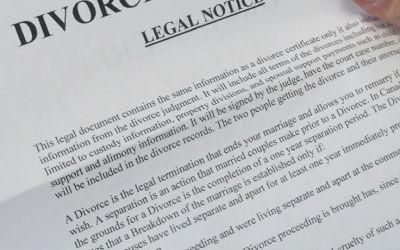Court Marriage for Muslims: A Legal Solution for Interfaith Couples in 2025
Table of Contents ▼
Can Muslims marry non-Muslims in civil court? Here’s how court marriage for Muslims can work for interfaith couples.
When a Muslim and a non-Muslim decide to marry, they often find themselves asking, “Can we marry through civil court?” The complexities of combining different religious beliefs with the legal aspects of marriage can be daunting. However, court marriage for Muslims offers a legal pathway to recognize the union, especially for interfaith couples.
In this blog, we’ll explore the essentials of court marriage for Muslims, including the legal framework, religious perspectives, and practical considerations for Muslim and non-Muslim couples.
Understanding Court Marriage for Muslims
A court marriage for Muslims is a marriage that is legally binding and recognized by the government, but not necessarily by religious authorities. For Muslim and non-Muslim couples, this provides an accessible option to formalize their relationship, especially when religious marriage ceremonies may not be possible due to differences in faith.
Religious marriages like the nikah follow Islamic rules, while court marriage for Muslims is governed by the state’s legal system. This distinction ensures that couples receive the legal benefits of marriage, such as inheritance rights, property ownership, and legal recognition, regardless of religious background.
Legal Frameworks Across Different Jurisdictions
The process and acceptance of court marriage for Muslims with non-Muslims vary by jurisdiction. Some countries have reformed their laws to make it easier for interfaith couples to marry, while others still impose restrictions based on religious beliefs.
For example, recent legal reforms in the UAE now allow Muslim and non-Muslim couples to marry under civil law, bypassing Sharia law. This reform was a significant shift, as it allowed interfaith couples in the UAE to marry without the previous restrictions that were based on religious law.
Despite these positive changes, the specific requirements for court marriage for Muslims still vary. Each country has its own regulations, residency requirements, and documentation procedures, so it’s crucial to understand the legal landscape of the country in which you plan to marry.
Religious Considerations vs. Legal Realities
While court marriage for Muslims provides an opportunity for Muslim/non-Muslim couples to marry legally, it’s important to understand the religious guidelines set out in Islamic law. These guidelines, which can vary between schools of thought, generally include the following:
- Muslim men are allowed to marry women from Abrahamic faiths, such as Jews and Christians, often referred to as “People of the Book.”
- Muslim women, however, traditionally face stricter rules and are generally expected to marry Muslim men.
Although these religious considerations influence the way interfaith marriages are viewed within the Islamic community, court marriage for Muslims doesn’t require adherence to religious law. This makes civil marriage a practical solution for Muslim and non-Muslim couples who wish to marry despite religious limitations.
Practical Considerations for Muslim + Non-Muslim Civil Marriages
Couples considering court marriage for Muslims should be aware of several practical aspects, including documentation, legal rights, and marriage processes.
Documentation Requirements
For a court marriage for Muslims, a variety of documents will be required, including:
- Valid passports or government-issued identification
- Birth certificates (may need to be apostilled or legalized)
- Certificates of no impediment (proof that both parties are free to marry)
- Divorce decrees if applicable
- Translations of documents (if necessary)
Ensuring that all the required documentation is in order is crucial, as missing or incorrect paperwork can cause significant delays. Consulting with a professional who understands the specific requirements of the jurisdiction can save time and effort.
Legal Implications
A court marriage for Muslims establishes legal rights and responsibilities that both parties should understand. These include:
- Property ownership and inheritance rights
- Child custody and support
- Divorce procedures
- Marriage recognition in the couple’s home country
- Tax implications and benefits
Many couples consult with legal experts in both the marriage jurisdiction and their country of residence to ensure they are fully aware of the legal consequences of their union.
Planning Timeline for Civil Muslim Marriage
Proper planning is key to ensuring that the court marriage for Muslims process runs smoothly. The following timeline is recommended:
- 3-6 Months Before: Begin researching possible jurisdictions and gather the necessary documents.
- 2-3 Months Before: Finalize the jurisdiction and start document authentication.
- 1-2 Months Before: Submit applications and start planning travel arrangements.
- 2-4 Weeks Before: Double-check with local authorities to confirm all requirements are met.
- Arrival: Arrive at least a few days before the ceremony to handle any unforeseen issues.
By starting early, couples can avoid the stress of rushing through the process.
FAQs
Will our court marriage for Muslims be recognized when we return home?
Recognition of a court marriage for Muslims depends on the couple’s home country. While most countries recognize legally performed marriages abroad, some may require additional registration or may not recognize marriages that contradict local laws.
Can we incorporate religious elements into our civil ceremony?
Yes, many civil ceremonies allow couples to include personalized vows, religious readings, and symbolic acts, as long as the legal part of the ceremony adheres to state requirements.
What if our families disapprove?
Family disapproval is often a challenge in interfaith marriages. Many couples seek professional guidance to help navigate these family dynamics. Consultants can assist in finding ways to address family concerns while honoring the couple’s decisions.
Conclusion
Court marriage for Muslims provides a practical and legal solution for interfaith couples who wish to marry. By offering an alternative to religious marriage procedures, it allows Muslim and non-Muslim couples to marry while respecting the legal frameworks of their respective countries.
Though challenges like religious considerations and family expectations may arise, court marriage for Muslims offers a straightforward, legally recognized pathway for those seeking to marry. By planning carefully, ensuring all documentation is in order, and consulting with legal and marriage experts, couples can focus on their future together rather than bureaucratic obstacles.
If you’re considering court marriage for Muslims, reach out to us today, and let us guide you through the process.


